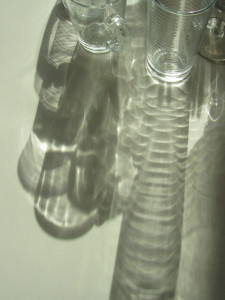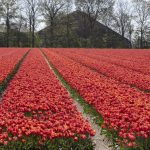
Kun je deze bloem niet zien zoals ze is, zonder haar een roos te noemen, zonder haar zelfs een bloem te noemen? Waar is het voor nodig? Kun je niet naar de werkelijkheid kijken zonder een idee in je hoofd, zonder een wolk om je heen? Kun je niet zonder taal – al is het maar voor even? Als je even zonder taal bestaat, heb je een ziende geest. Probeer het eens. Als je bij een boom zit, kijk dan gewoon naar de boom zonder te denken aan wat voor boom. En denk niet: het is een boom en denk niet: hij is mooi of lelijk. Laten je gedachten er zich helemaal niet mee bemoeien. Kijk alleen maar. Wat het ook is – XYZ – laat het zijn wat het is. Oordeel niet.
Jezus zegt: Oordeel niet. Taal is een oordeel. Met het oordeel komen alle vooroordelen. Met het oordeel komt je hele verleden aanzetten. En zodra het verleden opdoemt, ben je niet meer in het heden.
-Osho
Can you not see this flower as it is, without calling her a rose, without even calling her a flower? What is it needed for? Can you not look at reality without an idea in your head, without a cloud around you? Can you not live without language – even if it’s for a short while? If you live without language for a short while, then you have a seeing mind. Try it. If you sit at a tree, just look at the tree without thinking about what kind of tree it is. And don’t think: it is a tree and don’t think: it is beautiful or ugly. Don’t let your thoughts meddle with it at all. Just look. Whatever is it – XYZ – let it be what it is. Don’t judge.
Jesus says: Don’t judge. Language is judgement. All preconceptions start with judgements and with preconceptions your past will appear. And as soon as the past arises, you are no longer in the present.
-Osho



